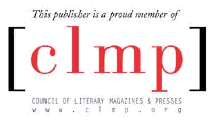 Ted Genoways has an amusing take on the news that Paul Muldoon has succeeded Alice Quinn as poetry editor of The New Yorker:
Ted Genoways has an amusing take on the news that Paul Muldoon has succeeded Alice Quinn as poetry editor of The New Yorker:"The Irish-born Muldoon (who also edited the Best American Poetry anthology in 2005) joins the ranks of English-born Glyn Maxwell at The New Republic and Yugoslav-born Charles Simic at Paris Review. And Simic is also now the Poet Laureate of the United States. Has anyone spoken to Lou Dobbs about this? Should we be concerned that Europeans are taking jobs away from American poets? Or is editing the kind of work that Americans are no longer willing to do?""All kidding aside," Genoways continues, "this seems another example of the healthy internationalization of American literature that has been going on recently." And he also hopes "that an Irish poet such as Muldoon will have an eye for harder-hitting, more topical poetry than we’re used to seeing in mainstream American magazines."
Certainly Muldoon has written poetry one might call "topical," but who knows what to expect from the poet who wrote "Hummingbird"?
At Nora's first post-divorce Labor Day bashWhat should we expect from this poet as an editor? Probably the unexpected. That is, in fact, just what Muldoon told Motoko Rich he plans to look for: “One would want to be absolutely open to the poem that one simply did not expect to have made its way into the world and somehow suddenly falls on one’s desk.”
there's a fluster and a fuss and a fidget
in the fuchsia-bells. "Two fingers of sour mash,
a maraschino cherry." "So the digit's
still a unit of measurement?" "While midgets
continue to demand a slice of the cake."
"A vibrator, you know, that kind of widget."
Now a ruby-throated hummingbird remakes
itself as it rolls on through mid-forest brake.
"I'm guessing she's had a neck-lift and lipo."
"You know I still can't help but think of the Wake
as the apogee, you know, of the typo."
Like an engine rolling on after a crash,
long after whatever it was made a splash.
What fell on the desk of PEN America when we were putting together Issue 5: Silences was this:
BURMAPost-script: Do you think
Her grandfather’s job was to cut
the vocal chords of each pack-mule
with a single, swift excision,
a helper standing by to wrench
the mule’s head fiercely to one side and drench
it with hooch he’d kept since Prohibition.
Why, Carlotta wondered, that fearsome tool?
Was it for fear the mules might bray
and give their position away?
At which I see him thumb the shade
as if he were once more testing a blade
and hear the two-fold snapping shut
of his four-fold, brass-edged carpenter’s rule:
And give away their position.
***
Update: Jennifer Howard at The Chronicle of Higher Education questions Genoways's generalization about Irish poets, then asks, "Is Muldoon’s appointment (or Simic’s, or Maxwell’s) really an example of a new internationalism in American literature or something less dramatic?" Genoways responds, and calls for a discussion of "the place of the political in poetry."


No comments:
Post a Comment